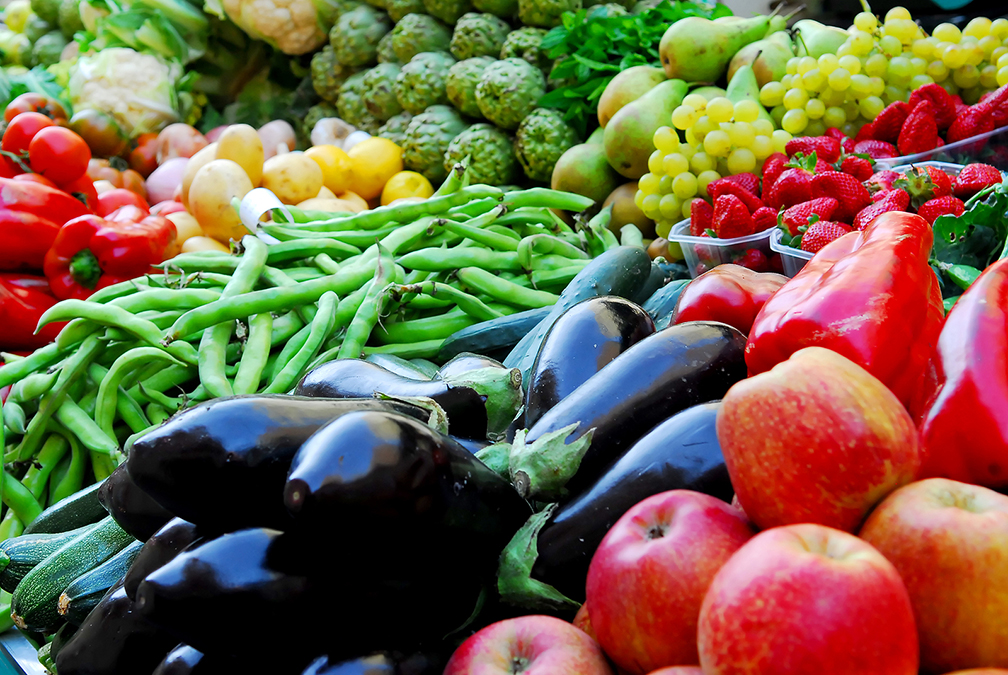 Age-related dementia occurs when brain cells are damaged and can no longer perform their necessary functions.
Age-related dementia occurs when brain cells are damaged and can no longer perform their necessary functions.
Most people experience this to some level as they age.
But scientists have just published a study in the journal Neurology that identifies a handful of foods that can counter this.
Load up on these types of food and experience your brain lighten up.
Many previous studies have identified antioxidants that are able to protect against brain cell damage, but they usually rely on participants’ memories when estimating the amount of antioxidants, they consume.
People don’t always remember or record their own diets accurately; however, so the better way to do this kind of study is to record the amount of antioxidants in participants’ blood.
That is precisely what the authors of this study did.
They examined the data of 7,283 people first collected by the Third National Health and Nutrition Examination Survey. The participants were 45 years and older at the beginning and were followed for between 16 and 17 years, some for as long as 26 years.
The National Health and Nutrition Examination Survey is extremely useful as it is a database that includes everything: the participants’ lifestyles, diets, blood samples, disease diagnoses, socioeconomic statuses, and so on.
They used Medicare and Medicaid data to identify those who developed dementia or Alzheimer’s disease and the subsequent period.
They were especially interested in vitamins A, C, and E as those are known to be strong antioxidants. They also checked a few other red, orange, yellow, green, and other colorful chemicals present in fruit and vegetables.
They found two antioxidants that worked especially well to prevent dementia and Alzheimer’s disease.
-
1. For every 8.6 Micromole per liter of beta-cryptoxanthin, subjects aged 45 and upward had a 14% smaller risk of developing dementia.
2. For every 15.4 Micromole per liter of lutein+zeaxanthin, subjects aged 65 and upwards had a 7% smaller risk of developing dementia.
3. They found no relationship between dementia and the three vitamins. Lycopene, alpha-carotene, and beta-carotene had no effect either after adjusting for other factors.
So, which foods contain beta-cryptoxanthin and a lutein+zeaxanthin?
Beta-cryptoxanthin is plentiful in tangerines, persimmons, oranges, peaches, papaya, red peppers, and pumpkin. Your body can use it to produce vitamin A.
Lutein+zeaxanthin are actually two different chemicals that are present in kale, spinach, broccoli, lettuce, parsley, peas, asparagus, pistachios, summer Squash, and pumpkin.
This study again shows why fruit and vegetables are so highly recommended in all healthy diets. They contain the types of chemicals that can prevent dementia.

 Overcoming IBD
Overcoming IBD Multiple Sclerosis
Multiple Sclerosis Banishing Bronchitis
Banishing Bronchitis Gum Disease Gone
Gum Disease Gone Overcoming Onychomycosis
Overcoming Onychomycosis Neuropathy No More
Neuropathy No More The Prostate Protocol
The Prostate Protocol Brain Booster
Brain Booster
 Ironbound
Ironbound
 Solution for Shingles
Solution for Shingles
 The Bone Density Solution
The Bone Density Solution
 The Ultimate Healing Protocol
The Ultimate Healing Protocol
 The Parkinson's Protocol
The Parkinson's Protocol
 The Chronic Kidney Disease Solution
The Chronic Kidney Disease Solution
 Overthrowing Anxiety
Overthrowing Anxiety The Fatty Liver Solution
The Fatty Liver Solution The Hypothyroidism Solution
The Hypothyroidism Solution
 The End of Gout
The End of Gout The Blood Pressure Program
The Blood Pressure Program
 The Oxigized Cholesterol Strategy
The Oxigized Cholesterol Strategy
 Stop Snoring And Sleep Apnea Program
Stop Snoring And Sleep Apnea Program
 The Arthritis Strategy
The Arthritis Strategy The Vertigo & Dizziness Program
The Vertigo & Dizziness Program The 3-Step Diabetes Strategy
The 3-Step Diabetes Strategy Hemorrhoids Healing Protocol
Hemorrhoids Healing Protocol The Erectile Dysfunction Master
The Erectile Dysfunction Master Weight Loss Breeze
Weight Loss Breeze The IBS Program
The IBS Program The Insomnia Program
The Insomnia Program The Migraine and Headache Program
The Migraine and Headache Program The Neck Pain Solution
The Neck Pain Solution The Menopause Solution
The Menopause Solution The Ejaculation Master
The Ejaculation Master The TMJ Solution
The TMJ Solution The Acid Reflux Solution
The Acid Reflux Solution The Fibromyalgia Solution
The Fibromyalgia Solution The Psoriasis Strategy
The Psoriasis Strategy